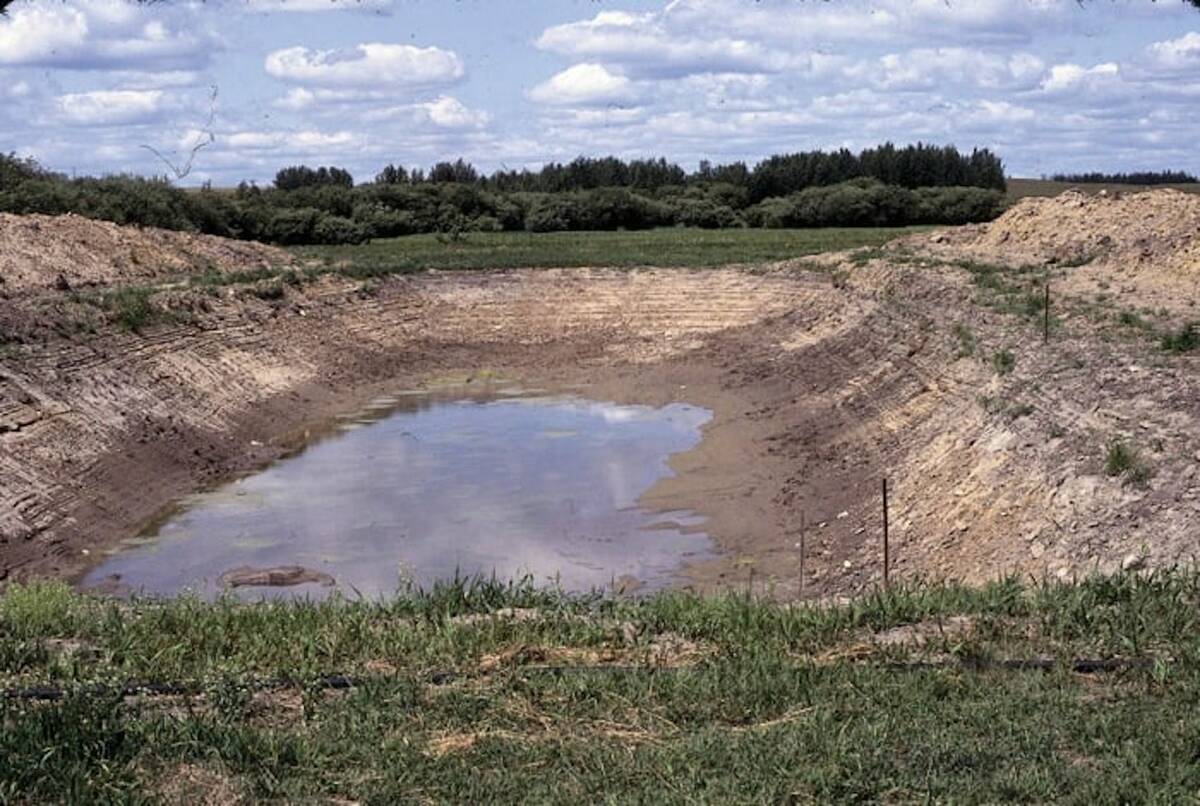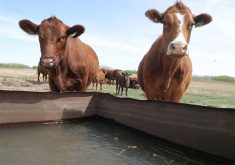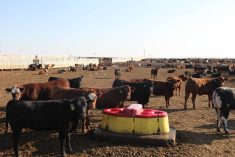Suggested precautions include branding, sales and purchase records, regular head counts and well-maintained fence lines
A Facebook post from a Manitoba farmer who had 50 head of cattle stolen from his yard went viral recently.
But he’s not the only one to have cattle stolen this year.
“It’s more than what we see regularly,” Paul Manaigre, communications officer with the Manitoba RCMP, said about the theft of 50 head. “It’s a bit more on the rare side.”
According to RCMP, Saskatchewan had 41 complaints concerning theft of livestock in 2020, and 23 complaints so far in 2021. In Alberta, there were 92 head of cattle considered to be possible thefts and 13 confirmed thefts in 2021. In 2020, the province had 91 possible thefts of cattle.
Read Also

Dry summer conditions can lead to poor water quality for livestock
Drought conditions in the Prairies has led to an decrease in water quality, and producers are being advised to closely monitor water quality for their animals.
Inspector Tammy Patterson with the Saskatchewan RCMP said farmers should take precautions. These include branding livestock, keeping sales and purchase records of livestock, counting cattle regularly and ensuring fence lines are in good repair. They should also consider using trail cameras to monitor animals.
“And then the big one too, if you’ve noticed suspicious activity on your land, or your neighbour’s land, report it to police. Do not feel like you’re bothering police,” Patterson said. “We will always accept a complaint.”
She said filing reports to police helps them collect as much information as possible.
Manaigre echoed Patterson’s statements, especially regarding how frequently producers should check livestock.
“Some of these pastures can go a long time without being come across or looked after,” he said. “So that delay, that someone’s not checking up on those cattle, let’s say, on a weekly basis, it’s very easy for that theft to occur.”
Manaigre said livestock theft is often a crime of opportunity, so making it harder to steal cattle in the first place is a means of prevention.
“Ideally, you want to have situations where you have a lot of monitoring of where they’re at,” Manaigre said.
“In order to steal cattle you have to have time, you have to have equipment. So you’ve got to make it as difficult as possible for them to want to come onto your property.”
Const. Lyle Korver with the Alberta RCMP said getting to know neighbours can help prevent thefts as well.
“Try to make contact with them so they know who you are and have your phone number and so they actually know certain vehicles you drive, what your truck and trailer looks like so that if they see a different truck and trailer in the pasture, they’ll shoot you a message or give you a quick phone call to make sure everything is the way it should be.”


















